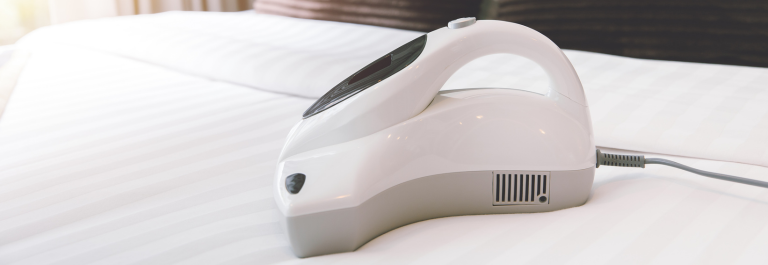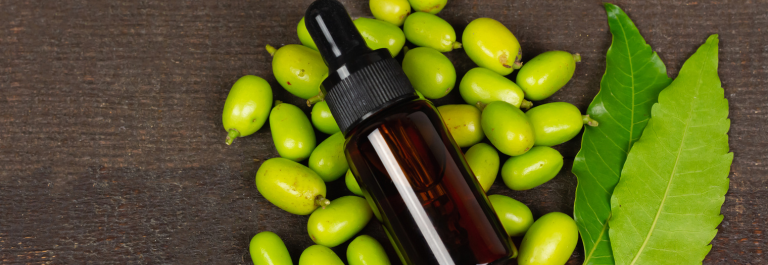There's nothing better than that squeaky-clean feeling of stepping out of the shower at the end of a long day. But while many of the harsh chemicals found in conventional soaps are highly effective at breaking down dirt, they also strip your skin barrier of its natural oils, wreaking havoc for eczema-prone skin.
The gentle cleansing properties of goat's milk soap offer a healthy alternative, helping to clean and moisturize even the most sensitive skin while nourishing your skin's microbiome.
That's why, throughout this post, we'll explore everything you need to know about:
-
How goat milk soap is made
-
The health benefits and risks of goat's milk products for sensitive skin
-
How to soothe eczema symptoms using goat milk soap
Keep reading to learn how goat's milk soap could help you manage your eczema symptoms today.
What Is Eczema?
Eczema refers to a set of chronic inflammatory skin conditions caused by a combination of genetic and environmental factors. Some of the most common varieties of eczema include atopic dermatitis, contact dermatitis, and seborrheic dermatitis.
For eczema sufferers, living with a compromised skin barrier means the skin struggles to absorb and retain moisture, leading to characteristic flare-ups of dry, itchy skin.
This can be made worse by harmful chemicals in soaps, body washes, and detergent for sensitive skin, which alter the skin's pH, strip away the skin's vital natural oils, and may penetrate a broken skin barrier, causing inflammation and irritation.
What Is Goat's Milk Soap?
Goat milk soap can be made directly from fresh goat's milk or a powder base.
It combines goat's milk, lye, and other natural fats and oils, such as olive oil and shea butter, to create a creamy, buttery balm.
Goat's Milk versus Cow's Milk: What's the Difference?
Goat's milk soaps are more expensive than soaps produced using cow's milk. But is the difference worth the price?
Compared to cow's milk, goat's milk triggers fewer allergic reactions because it contains less alpha S1 Casein protein and lactose. Goat's milk also contains higher amounts of vitamin A, encouraging the production of new skin cells to keep skin robust and supple.
When it comes to drinking goat's milk, this natural superfood contains shorter essential fatty acids than the larger fat globules found in cow's milk, making it easier to digest. This is especially useful if you or your loved ones struggle with food intolerances, too.
Health Benefits of Goats Milk Soap For Eczema
While researchers are still exploring the impact of using goat milk soap for eczema, many people already swear by the nourishing benefits of this gentle ingredient for their skin.
If you or your loved ones have sensitive skin and you're looking to get a handle on your eczema symptoms, here are a few ways that goat milk soap might be able to help:
Supporting Your Skin's Natural Microbiome
Because goat's milk soap doesn't contain harsh chemicals, it is far less disruptive for the skin's microbiome than the typical body wash you might buy from the store.
The pH of goat's milk is similar to that of your skin, meaning that the essential bacteria and microbes on your skin's surface are better supported to thrive.
Especially for people with eczema, these microbes play a vital role in forming a protective barrier for the body, working with your immune system to defend against infections and heal dry, cracked skin.
Exfoliate Dead Skin Cells
One of the most troublesome symptoms of eczema is skin dryness, scaling, and flaking, which leads to the itchy build-up of dead skin cell patches or 'plaques.'
Thankfully, goat milk soap contains naturally occurring alpha hydroxy acids and lactic acid, which gently exfoliate dead skin cells, encouraging the healthy turnover of new skin cells and helping to soothe eczema itching.
Boosting Your Skin's Hydration
Goat's milk contains many natural fats and oils that help to bolster your skin's vital hydration, restore your skin's barrier, and reduce redness.
Top Hygiene Tips
-
While running yourself a piping hot bath might be very tempting, hot water can dry out your skin and worsen eczema symptoms. Instead, be sure to wash your body with lukewarm water.
-
After the shower, pat your skin dry with a soft towel rather than rubbing abrasively. Rubbing can irritate your itchy skin even more.
-
To 'lock in' extra hydration, we'd recommend lathering your body in an intensive nourishing moisturizer between 1-3 minutes after stepping out of the shower, such as the Organic Manuka Skin Soothing cream.
What Are The Potential Risks of Using Goat Milk Soap?
While goat milk soap is a naturally low irritant and much gentler than many commercial soaps, just because an ingredient is natural doesn't always mean it comes without risks. For example,
-
Using goat's milk soap regularly could increase the risk of developing a goat's milk allergy, particularly if you're already prone to other food allergies too.
-
Some goat's milk soaps also tend to contain olive oil, which has been proven to irritate the skin of some eczema sufferers (so make sure you check labels!)
To avoid nasty surprises, we recommend patch testing with new skincare products before applying them to your body.
If you want to use goat milk soap to help treat your infant or child's eczema flare-ups, we recommend always consulting a pediatrician first. You may also consider specialized eczema cream for babies.
Alternative Natural Soaps
If goat's milk soap doesn't sound quite the right fit for you, don't fret! There are plenty of other eczema soap options that we'd recommend for safe, effective eczema relief, no matter your skin type.
Soap for Eczema with Chinese Herbs
This Soap for Eczema with Chinese Herbs by Emily Skin Soothers is made with Chinese herbs for eczema that are both rich and moisturizing and won't strip the skin of its natural, protective oils. It is 100% free of all artificial colors, fragrances, and preservatives, making it a safe choice for anyone with dry, sensitive skin, eczema, and psoriasis.
Pine Tar Soap
Every bar of this Pine Tar Soap with Tallow contains 20% kiln-burned pine tar from Sweden, which has long been used as a natural remedy for wound healing and is also known to be highly anti-bacterial and anti-inflammatory, which is why it's effective in treating eczema.
Tallow is a rendered form of beef fat that is especially nourishing for cracked, dry skin. You can also find beef tallow cream for additional moisturizing benefits. You can rest assured that the tallow within this soap has been sourced from grass-fed and finished cows.
Coconut and Sunflower Oil Soap Bar
This Coconut and Sunflower Oil Soap Bar is made with gentle ingredients your delicate skin will love, providing cleansing without causing further irritation or dryness.
Sunflower oil contains Vitamins A, B, D, and E, while moisturizing and anti-bacterial coconut oil and shea butter are known for their healing benefits.
Boost Eczema Management Routine Today
Follow these tips to help you better understand how to use goat milk soap for eczema today, helping keep even the most sensitive skin types clean, healthy, and happy. For additional relief, consider pairing with a gentle eczema cream.



